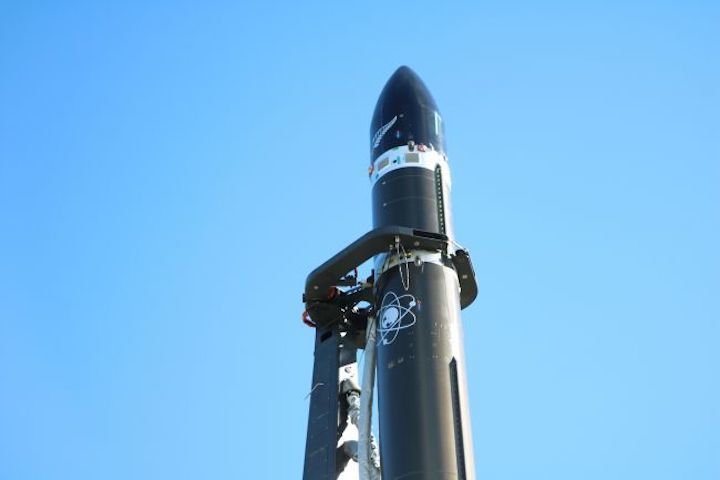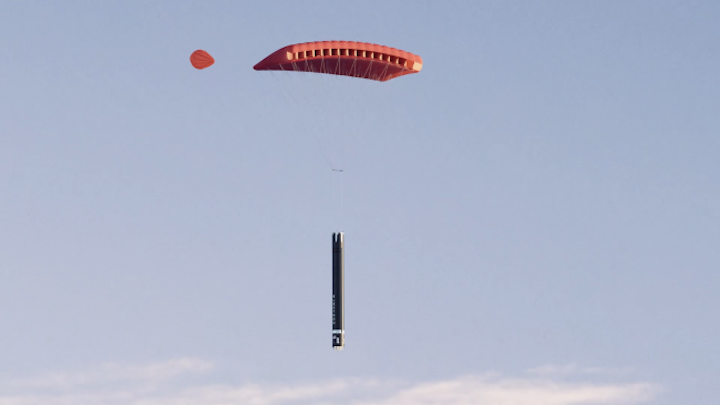19.11.2019
The private spaceflight company Rocket Lab unveiled a new rocket-building robot designed to speed up manufacturing of Electron launch vehicles.
The Electron rocket is a two-stage orbital-launch vehicle developed by Rocket Lab, which provides launches for small satellites to Earth orbit. On Nov. 13, Rocket Lab added "Rosie," a custom-designed robotic system, to the company's manufacturing line.
Using Rosie, Rocket Lab is now able to produce the carbon-composite components of the Electron rocket in just 12 hours, a process that used to take more than 400 hours, according to a statement from the company.

Rocket Lab's Electron rocket is staged to launch from the company's Launch Complex 1, located on the Mahia Peninsula, New Zealand.
"What this machine does is it takes every single carbon-composite component of the launch vehicle and processes it to move on to the next stage of production," Peter Beck, founder and CEO of Rocket Lab, said in a video. That includes "every bit of marking, every bit of machining, every bit of drilling."
Measuring 1,507 square feet (140 square meters), Rosie is large enough to house a bus, thus offering ample space to process the entire two-stage Electron rocket, as well as its payload fairings.
Previously, Rocket Lab was producing an Electron launch vehicle every 30 days. Now, with Rosie, the company is a step closer to its goal of building one Electron rocket every seven days, the statement said.

Rocket Lab will use a helicopter to retrieve the reusable first-stage rocket from sky during its reentry.
"What Rosie really means for Rocket Lab and [its] launch frequency is we are able to process launch vehicles so much faster," Beck said in the video. "We can produce one launch vehicle in this machine every 12 hours."
In addition to Rosie, Rocket Lab uses 3D printing for components of its launch vehicle engines and is working to develop a reusable first stage for the Electron rocket. The company's next launch, scheduled for a two-week window that opens Nov. 25, will feature an upgraded booster to support recovery efforts of the first stage. These initiatives reduce the production time for launch vehicles and further support high-frequency launch capabilities, the company said.
Rocket Lab recently built a new range control facility at the company's New Zealand launch site to streamline mission operations. The company is also completing construction of a second site, Launch Complex 2, on Wallops Island, Virginia, which will support the first Electron rocket launch from the U.S., in 2020, according to the statement.
Quelle: SC
